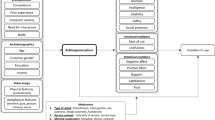Abstract
Instead of wondering about the nature of robots, as if our thinking about humans was stable and straightforward, we should dig deeper in thinking about how we think about humans. Indeed, the emotions embedded in the ethical approaches to robots and artificial intelligence, are rooted in a long tradition of thinking about humans, either in an instrumental or in a pseudo-divine way. Both perspectives miss humanness, and are misleading when it comes to thinking about robots and their relationships with humans. With the instrumental way to grasp humanness, humans are seen as machines and, by the same token, robots can easily be seen as human, as a matter of fact. With the quasi-divine way to grasp humanness, humans are seen as aspiring omniscient-omnipotent creatures and, by the same token, robots are projected to be, what men will always fail to become. Hence, our way to think about robots is mirroring our way to think about humans…as long as we hold rationality as a distinctive criteria for humanness. The text below flows from a TEDxULB talk that took place in Brussels on May 4, 2016 (https://www.youtube.com/watch?v=VcGywYSJlf0). It calls for leaving behind the rational subject as proxy for humanness, and embracing instead the figure of the relational self. The relational self is rooted in the Arendtian concept of plurality. Embracing the relational self, instead of the rational subject, has several advantages: it allows to distinguish humans from artefacts; it allows to grasp the dynamics between control, orientation, and recognition and to understand how human freedom flows from this dynamics; it opens to the foregrounding of vulnerability, as a shared characteristic of humanness, instead of as a defect touching only some; last, and surely not least, it points to a new form of vulnerability: that of our attentional spheres, whose protection may deserve a new fundamental right, in order to ensure our integrity, besides and beyond body and home.
Similar content being viewed by others
Notes
Hannah Arendt, The Human Condition (Garden City, NY: Doubleday Anchor Books, 1959), p. 155.
Ibid. (p. 159).
Author information
Authors and Affiliations
Corresponding author
Additional information
"The views expressed in the article are the sole responsibility of the author and in no way represent the view of the European Commission and its services".
Rights and permissions
About this article
Cite this article
Dewandre, N. Humans as relational selves. AI & Soc 34, 95–98 (2019). https://doi.org/10.1007/s00146-017-0700-0
Received:
Accepted:
Published:
Issue Date:
DOI: https://doi.org/10.1007/s00146-017-0700-0



